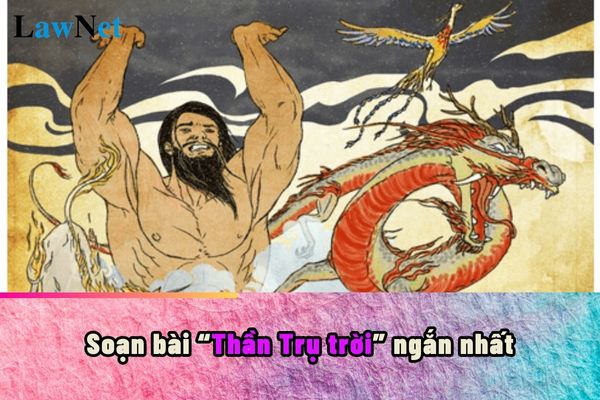What are guidelines on preparing the lesson "Thần Trụ trời" for students in Vietnam? What subjects are included in grade 10 curriculum in Vietnam?
What are guidelines on preparing the lesson "Thần Trụ trời" for students in Vietnam?
The lesson "Thần Trụ trời" is one of the texts that grade 10 students will learn in the grade 10 Literature program on pages 26 and 27 of the "Canh Dieu" curriculum.
|
Preparing the Lesson " Thần Trụ trời " Shortest 2024 * Main Content of the Lesson: |
*Note: Information is for reference only./.

What are guidelines on preparing the lesson "Thần Trụ trời" for students in Vietnam? What subjects are included in grade 10 curriculum in Vietnam? (Image from the Internet)
What subjects are included in grade 10 curriculum in Vietnam?
According to Section 4 of the General Education Program promulgated with Circular 32/2018/TT-BGDDT (amended by Article 1 Circular 13/2022/TT-BGDDT) regarding the educational plan:
EDUCATIONAL PLAN
The general education program is divided into two phases: the basic education phase (from grade 1 to grade 9) and the career-oriented education phase (from grade 10 to grade 12).
The system of subjects and educational activities of the general education program includes compulsory subjects and educational activities, career-oriented elective subjects (referred to as elective subjects), and optional subjects.
The actual learning time in a school year is equivalent to 35 weeks. Educational institutions can organize teaching either one session/day or two sessions/day. Schools that organize teaching one session/day and two sessions/day must implement the common compulsory educational content uniformly for all educational institutions nationwide.
According to the new grade 10 curriculum from 2024-2025, students are preparing to enter the career-oriented education phase, so they will choose the following subjects:
*Career-oriented education phase
- Compulsory subjects and educational activities: Literature; Mathematics; Foreign Language 1; History; Physical Education; National Defense Education; Experiential activities/education and local educational content.
- Elective subjects: Geography, Economic and Legal Education, Physics, Chemistry, Biology, Technology, Information Technology, Music, and Fine Arts.
- Students choose 4 subjects from the elective subjects.
- Study topics: Each subject, such as Literature, Mathematics, History, Geography, Economic and Legal Education, Physics, Chemistry, Biology, Technology, Information Technology, Music, Fine Arts, has several study topics forming a cluster of study topics of the subject to meet the deep differentiation requirements, helping students enhance knowledge and practical skills, applying learned knowledge and skills to solve real-life issues, meeting career orientation requirements. The duration for each study topic is 10 or 15 periods; the total duration for a cluster of study topics of a subject is 35 periods/year.
In each grade 10, 11, 12, students select 3 clusters of study topics of 3 subjects suitable to their aspirations and the school's organizational ability.
- Schools can create combinations of subjects from the subjects and study topics mentioned above to meet the learners' needs while ensuring suitability with the school's teacher workforce, facilities, and teaching equipment conditions.
Optional subjects: Ethnic Minority Language, Foreign Language 2.
What are 6 rights of grade 10 students in Vietnam?
The rights of grade 10 students are specified in Article 35 of the Regulations promulgated with Circular 32/2020/TT-BGDĐT:
- Equal access to comprehensive education, guaranteed conditions regarding time, facilities, hygiene, safety for in-class and self-study at home, provided with information about their study and training, and allowed to use devices, tools for studying, cultural, and sports activities of the school according to regulations.
- To be respected and protected, treated equally and democratically, have the right to complain to the school and education management levels about decisions regarding themselves; have the right to transfer schools for legitimate reasons according to current regulations; learn ahead of age, skip classes, study at an age higher than the regulated age according to Article 33 of the Regulations issued with Circular 32/2020/TT-BGDĐT.
- Participate in activities to develop talents in subjects, sports, and arts organized by the school if qualified.
- Receive scholarships or other assistance according to policies for socially disadvantaged students, students with life difficulties, and students with special abilities.
- Transfer schools if meeting the conditions as regulated; the transfer procedure follows the regulations of the Minister of Education and Training.
- Enjoy other rights as prescribed by law.

